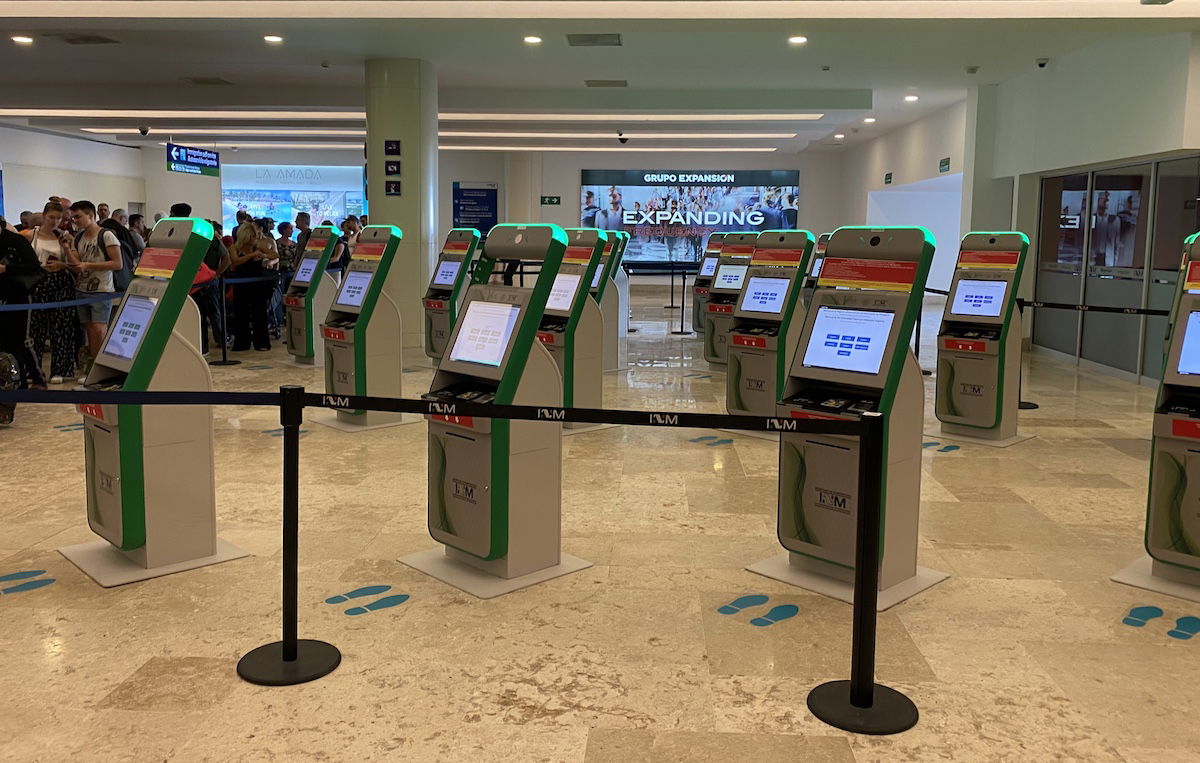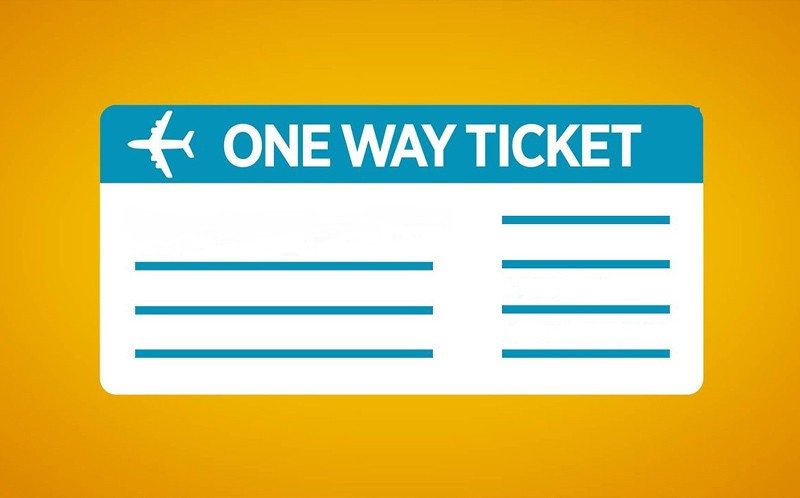Flying On A One-Way Ticket: How To Avoid Problems
Logistics Of Traveling With Two Passports (And Dual Citizenship)
I’m lucky enough to have dual citizenship, as both of my parents were born in Germany, and I was born in the United States.
A reader emailed me a question about the logistics of traveling with dual citizenship, and I figured it was worth addressing in a post, given that I imagine she’s not the only one who has wondered about this.
A reader question about traveling with two passports
Reader Susannah asked the following question about traveling between the US and Austria as a dual citizen:
“I’m a dual US-Austrian citizen. Normally when traveling back and forth, I book my tickets on my American passport and enter/exit both countries with it. With COVID entry restrictions, this is now more complicated (I haven’t flown since COVID began due to health concerns but now I’m fully vaccinated and planning travel).
How do you advise to best go about the passport logistics of a Dulles-Vienna roundtrip? Do I book the ticket with my Austrian passport? What happens when I check in at VIE for the return flight – will I be able to check in with the Austrian passport if I’m an American citizen flying home? Do I need to present both passports at every stage? What’s the best way to go about this to avoid any problems with check in agents and/or border control?”

Figuring out immigration restrictions can be complicated
How I decide which passport to use when traveling
I’m going to address this topic more generally, not factoring in coronavirus, given the extent to which coronavirus has impacted entry restrictions.
When traveling, I generally use my passport from Germany:
- When I’m entering Germany or any other European Union country; this allows me to avoid getting “stamped,” as I’m always trying to avoid filling up passport pages
- When I’m entering a country where a German passport is advantageous compared to a US passport; for example, some countries have reciprocity fees or require visas for those with US passports, but not for those with German passports
I use my passport from the United States in virtually all other situations, including:
- When I’m entering the United States, both since I have Global Entry, and since entering with my German passport would require an electronic travel authorization
- When I’m entering countries under any other circumstances, since it’s easier for me to get a second passport in the US than in Germany, if I run out of pages
Furthermore, I usually try to use the same passport when entering a particular country, even if it’s not the United States or European Union. For example, I once used two different passports to enter the same country several months apart, and that got me sent to secondary, as it seemed to trigger some alert in the system.

I use my US & German passports in different situations
A practical example of passport logistics
Let me answer Susannah’s question by giving an example of my routine when traveling between the US and Germany. There are a few general things to keep in mind:
- You always need to enter and exit a country with the same passport
- Many countries require you to use your passport from that particular country if you are a citizen
- There’s no shame in admitting you have two passports, if you get confused at any step in the process; you could even proactively present both passports every step of the way
With that in mind:
- It doesn’t matter what passport information you enter into the itinerary when you book, if it’s even required
- When I check in for my flight to Germany, I provide my German passport, since this is the information shared with German authorities, and determines my eligibility to enter the country
- When I land in Germany I use my German passport at immigration, which avoids me getting a stamp (and saves space in my passport)
- When I check in for my flight back to the US, I provide my US passport, since that’s what will be shared with US authorities, and avoids me needing an electronic travel authorization
- Then when I go through departure immigration (which is a step that doesn’t exist on the outbound, since we don’t have that) I present my German passport, since it’s the passport with which I entered the country
- Then when I land in the US I again present my US passport, since that’s what I need to get through immigration, and also what has Global Entry
I’ve certainly been absent-minded in the past and accidentally showed the wrong passport, whether at check-in, immigration, or wherever. However, that has always been quickly noticed and corrected without issue.

When traveling to Germany I use my German passport
Bottom line
I’m incredibly fortunate to have dual citizenship, as I have both a US and German passport. Hopefully the above sheds some light on how I decide to use each passport, and also helps anyone who may be trying to figure out which passport to use when traveling, especially with how complicated travel has become.
To anyone else who has passports from two different countries, how do you decide which to use when traveling?
Flying On A One-Way Ticket: How To Avoid Problems

I recently got this question via e-mail from a reader:
“How strict are the immigration officials and/or the airlines about the required return/onward tickets? I’ll be going travelling for a long time (open end) and am trying to decide whether to buy a RTW or single tickets and this is a crucial point for the decision.”
This is a great question. Unfortunately, this is an issue you could face anywhere when flying internationally, and the answer is not always so clear-cut. Let me explain.
The problem with one-way tickets
Here’s the reason why airlines can often throw up a fuss when you try to fly on a single ticket to another country:
Technically speaking, immigration officials can deny you entry to a country for all sorts of different reasons. If that were to happen, the airline would be liable for flying you back to your point of origin.
Airlines don’t want that!
So, even though it’s them who sold you the one-way ticket in the first place, they might have questions for you once you get to the check-in desk.
For example, they might ask you about your return ticket or proof of onward travel. They don’t want to risk having to fly you back if there’s an issue.
You can travel internationally on one-way tickets many times and not get asked anything, then one day you can be denied boarding. The reality is that a lot depends on the airline’s policies, where you are trying to fly, and if you are unlucky that day.
Quick solution: onward ticket
With Onwardticket.com you can get a legitimate temporary ticket for proof of onward travel, which expires after 48 hours.
Here’s what happened to me
Since I often visit multiple countries on one trip, I routinely fly one-way. This lets me start in one country and end my trip in another.
A few times, I’ve had difficulties in flying one-way. I’ve never had issues with immigration, always with the airlines.
One time, I was going to fly one-way from London to Mexico with Virgin Atlantic. Immediately, I was asked why I didn’t have a return. I explained I was a backpacker heading off on a long trip, with no return booked yet. I also explained I’d not be in Mexico for longer than the 90 days given by the visa-on-arrival. This was enough for the staff to drop the subject.
Another time, I nearly missed my flight. This was flying one-way from Singapore to the Philippines. Only 15 minutes before check-in closed, I was told I couldn’t board without proof of onward travel.
I still got on my flight, but not without running around the terminal like a headless chicken looking for a WiFi hotspot where I could book the cheapest possible flight out of the Philippines. I was the last passenger to make it onto the plane, sweating heavily and out of breath.
When flying from Miami to Honduras, I ran into the same issue. This time, the staff at the check-in desk kindly booked a refundable return for me. They gave me a phone number I could call as soon as I’d landed to cancel the return. That’s the only time I was offered such a service.
How to avoid problems
Of course, if you’re flying domestically, you don’t have to worry about taking one-way flights. The same goes if you’re flying within the same travel jurisdiction, like the Schengen zone in Europe.
Otherwise, you may want to reduce the risk of any issues when flying one-way in one of these ways:
- Arrive at the airport early. If they refuse to check you in, you’ll still have time to buy a (throw-away or refundable) ticket in a pinch.
- If asked, buy a refundable return ticket. If the staff doesn’t give you issues, great! If they do demand to see ‘proof of onward travel’, go online at the airport and buy a refundable return ticket. If none are available, consider getting a super cheap morning flight with no luggage. You’re not going to use this ticket, it’s only to satisfy the bureaucracy, so just get whatever is cheapest.
- Book a cheap bus or train. It’s best to have a return flight, but a cheap train or bus ride out of the destination country may work too. No guarantees, but I’ve heard a few travelers use this successfully.
- Buy a temporary onward ticket (easiest solution). The best way to avoid problems is to simply create a temporary return ticket. It will cost far less than buying any other ticket and give you valid proof of onward travel.
Keep in mind the goal is just to show you can leave the destination country. You don’t need a return ticket all the way home, it can be enough just to have a flight to a neighboring country.
Buying a temporary onward ticket
If you choose the solution of buying a temporary return ticket, I recommend using Onwardticket.com. They’re a travel agency that will book you a 100% real flight ticket that is valid for 48 hours. Instead of paying the full price for a return ticket, you only pay a $12 service fee.
This is different from other services found around the web that will create a fake ticket, just to use as ‘proof of onward travel’. Of course, the legality of this is questionable… in that it’s absolutely not! I don’t recommend such services that promote fraud, some of which are even known as scams.
To be clear, Onwardticket gives you a complete and real ticket, for a fee of $12, that they cancel after your one-way flight is completed. You can see that Onwardticket has a 4.7 rating on TrustPilot, and I know some of the people who work for Onwardticket, which is why I’m happy to recommend them instead of other providers.
Flying one-way is often necessary, especially if you travel long-term, are a digital nomad, or simply flying back from another country. It would be crazy to have to pay for a return flight you’ll never use, so using a cheap disposable ticket for your proof of onward travel is the perfect solution.
Some links may be affiliate links, meaning I may earn commission from products or services I recommend. For more, see site policies.
Travel to Europe from UK in 2022

What are the latest Covid rules around travel to Europe from the UK?
The success of the vaccination roll out now means it’s much easier than it was to travel throughout the European Union. However, it’s important not to be too lax, so make sure you check entry requirements before your departure date. As we have all seen, the situation can change quickly.
- If you’re fully vaccinated, it’s likely that you won’t need to show evidence of a negative PCR before you travel.
- If you haven’t been fully vaccinated, you’ll likely need to show proof of a negative PCR instead.
You should be able to use your NHS Covid pass as proof of vaccination (don’t rely on an appointment card). However, it’s always worth double checking with the specific country you’re travelling to.
What are the key things I need to check before I travel to Europe post- Brexit?
- Passports: find out if you need to renew
- Health insurance cards: get the lowdown on the new Global Health Insurance card
- Visas: find out if you’ll need a visa for your destination : make sure you have the right car insurance and find out if you need an international driving permit
- Taking pets abroad: arrange an animal health certificate
- Border checks: prepare for more questions at the border
- Changes to duty free: familiarise yourself with the new allowances
- Internet and roaming charges: check the terms of your deal to avoid a painful bill
- Travel insurance: get the lowdown on the cover you need
Is my British passport still valid after Brexit?
If you’re planning a trip to places like Spain, France, Italy or Greece, you might be wondering if you need a new passport or need a certain amount of time left on them to travel.
The good news is existing British passports after Brexit are still valid – they just need to be less than 10 years old and have at least six months’ left on them
This change doesn’t apply when travelling to Ireland – so long as your passport is valid during your stay, you should be okay.
If you need a new passport, be aware applications might take slightly longer than normal to process due to the pandemic.
What about my European Health Insurance Card (EHIC)?
With a few exceptions, you won’t be able to get a new EHIC. It has been replaced by the Global Health Insurance Card (GHIC).
You can carry on using existing EHICs until they run out. The expiry date is be shown on the card.
You can use an existing EHIC or GHIC within the EU and Switzerland. The government says more countries may be added in the future.
You can find out more about the rules surrounding who can use EHICs and GHICs and where they can be used on GOV.UK.
It’s important not to rely solely on your EHIC or GHIC card. You can only use it to access state supplied healthcare. This means that without a travel insurance policy that covers medical costs, you may still end up with a hefty medical bill.
If you have a pre-existing medical condition, you might want to think about taking out specific pre-existing medical travel insurance.
Check your policy details or get in touch with your insurance provider for more information.
Do I need a visa to travel to Europe?
If you’re going on holiday for fewer than 90 days, you shouldn’t need a visa to travel to Europe.
What about driving from the UK to Europe?
If you’re planning on driving your car in Europe, you’ll need:
- A UK sticker displayed clearly on the rear of your vehicle.
- If you have a photocard driving licence, you won’t need an international driving permit (IDP) for driving in the EU. If you have a paper licence or are travelling to a non-EU country, you may need to get an appropriate IDP. : All UK car insurance policies provide basic third-party cover for most countries in Europe and so you shouldn’t need a green card as proof of insurance. However as this is only third-party you may want to discuss more comprehensive cover with your insurance company. You can find a full list of countries where you may need a green card on the government website.
What travel insurance do I need to travel to Europe from the UK?
A standard travel insurance policy for Europe should do the job.
However, with so many changes, it’s important to get the right level of cover for your trip. Two important things to consider when getting a policy are:
- Medical cover: You want to ensure that if you incur any medical expenses on your trip are included. Although your EHIC or GHIC provides some cover it wouldn’t get you flown home in an emergency, unlike a travel insurance policy.
- Cancellation cover: With things still uncertain during the pandemic, it’s important to know that you’ll get your money back if certain emergencies force you to cancel or cut short your trip.
So taking out travel cancellation cover could be a good idea.
Make sure you get cover for the whole family. A family travel insurance policy ensures every single member has cover, not just you.
Compare travel insurance
What else can I do to protect myself?
If you can, use a credit card to pay for the holiday
This gives you extra protection under the Consumer Credit Act. So, if the airline goes bust and your insurance policy doesn’t cover it, your credit card company could.
What do I need to know about business travel to the EU after Brexit?
Business travel to EU after Brexit shouldn’t be too complicated for most people. UK nationals are able to enter the EU for business, without a visa, so long as they aren’t going to be staying for longer than 90 days within any six month period.
Business people are be able to attend meetings, conferences and trade fairs, conduct research and participate in training. They should also be able to sign contracts.
However, they aren’t able to deliver goods, supply services or service contracts.
A visa, work permit or other documentation might be needed if:
- You’re self employed and supplying services
- Carrying out contracts or supplying services in a country where your employer doesn’t have a presence
- You’re participating in an ‘intra-corporate’ transfer
You can check on the government website whether you’re likely to need a visa or a work permit for the specific country you’re travelling to.
Taking pets abroad
Pet passports issued in Great Britain are no longer valid.
Before you go abroad, you’ll need to:
- Get your pet microchipped
- Get a rabies vaccination
- Take your pet to the vet 10 days before you travel to get an Animal Health Certificate (AHC).
If you’re travelling to Finland, Ireland, Northern Ireland, Norway or Malta, your dog will need tapeworm treatment.
With some exceptions, you can’t travel with more than five pets.
If you’re travelling to a non-EU country, you’ll need to fill in an export application form, and get an export health certificate.
For more information, visit GOV.UK.
Will I still get free mobile internet in Europe?
You’ll no longer enjoy free mobile phone roaming as standard while on holiday within the EU.
But you’ll have to opt-in to spend over £45 on mobile internet abroad.
With high roaming charges, you could still spend up to that amount without realising it.
This means it’s vital to check your mobile roaming charges before you go.
Will there be border checks?
There’ll likely be stricter border checks, and you’ll need to use a separate queue for EU travellers.
You may also need to show that you have a return ticket and enough money for your stay.
If you’re carrying more than £10,000 in cash, you’ll need to declare it. You can do this up to three days before you travel. For more information, visit GOV.UK.
If you don’t declare it, you could get a fine of up to £5,000.
Changes to duty free
You can still buy certain items duty free, but there’ll be limits on how much you can bring back. These limits are:
- 200 cigarettes
- 50 cigars
- 250g tobacco
- 42 litres of beer
- 18 litres of wine
- 4 litres of spirits
What UK travel documents will I need to travel in Europe after Brexit?
The only documents most of us need to travel in Europe is our passport. Although if it’s a longer stay (90 days or more) or you’re working (not just visiting for a meeting) you may need a visa and or a work permit.
There are other documents it might be able to pack though such as your EHIC or GHIC cards as well as details of your travel insurance policy.
If you’re driving you’ll also need your driving licence and the UK car sticker and it’s a good idea to have details of your car insurance to hand too.
Will I need to pay to travel to Europe from the UK?
Before the end of 2022 visitors from the UK need to pay a 7 euro processing fee when they enter the EU.
What about travel to Switzerland, Norway, Iceland or Liechenstein?
The rules around healthcare for these countries are slightly different, as they aren’t members of the EU.
In Switzerland to use your EHIC or GHIC you’ll need to demonstrate that you’re a:
- British national
- Swiss national
- EU citizen
- Refugee
- Stateless person
- Dependent of one of the above
In Norway you can use your passport to access certain healthcare, for example emergency treatment.
If you’re travelling to any of these countries, the government advises to check entry requirements before you go.
Source https://onemileatatime.com/two-passports-dual-citizenship/
Source https://www.indietraveller.co/travelling-on-one-way-tickets/
Source https://www.confused.com/travel-insurance/guides/travel-to-europe-from-uk